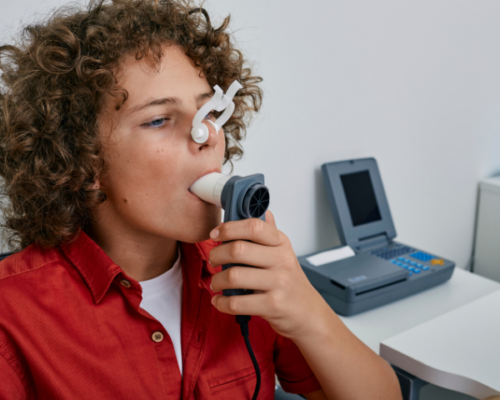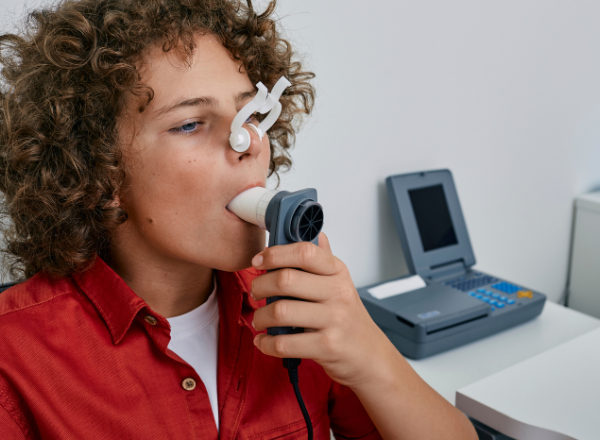Helicobacter pylori Infection—a common but serious condition you should know about
Understanding its causes, symptoms, and treatments can help you take control of your health.
Helicobacter pylori Infection—a common but serious condition you should know about
Understanding its causes, symptoms, and treatments can help you take control of your health.

Helicobacter pylori is a type of bacteria that can infect the stomach lining, leading to a variety of digestive issues. Over time, untreated H. pylori infections can cause more serious problems, including stomach ulcers and even gastric cancer. Understanding this condition is crucial for anyone experiencing digestive discomfort.
Left untreated, Helicobacter pylori infections can have significant consequences. It is one of the leading causes of ulcers in the stomach and duodenum. Additionally, persistent H. pylori infections are linked to an increased risk of developing gastric cancer. Early diagnosis and treatment can help reduce these risks and improve overall digestive health.
Globally, approximately 50% of people are infected with Helicobacter pylori. In Australia, the infection rate is around 40% in the older population, though it has become much less common in younger generations. Despite this, it remains an important health concern, especially as its symptoms may not always be immediately noticeable.
Helicobacter pylori is a type of bacteria that can infect the stomach lining, leading to a variety of digestive issues. Over time, untreated H. pylori infections can cause more serious problems, including stomach ulcers and even gastric cancer. Understanding this condition is crucial for anyone experiencing digestive discomfort.
Left untreated, Helicobacter pylori infections can have significant consequences. It is one of the leading causes of ulcers in the stomach and duodenum. Additionally, persistent H. pylori infections are linked to an increased risk of developing gastric cancer. Early diagnosis and treatment can help reduce these risks and improve overall digestive health.
Globally, approximately 50% of people are infected with Helicobacter pylori. In Australia, the infection rate is around 40% in the older population, though it has become much less common in younger generations. Despite this, it remains an important health concern, especially as its symptoms may not always be immediately noticeable.

Causes of Helicobacter pylori infection
Transmission methods
Helicobacter pylori is typically spread through contact with contaminated food, water, or direct person-to-person interaction. Poor management of hygiene, especially in regions with limited access to clean water, increases the likelihood of transmission. The bacterium can also be transmitted through oral contact, such as kissing, though this is less common.
Risk factors
Several factors can increase the risk of contracting an H. pylori infection, including living in areas with poor sanitation, having a family history of the infection, being elderly or immunocompromised, and consuming unclean or improperly prepared food and water. Maintaining good hygiene and access to clean water can help reduce the risk of infection.
Global and Australian perspectives
While Helicobacter pylori is widespread globally, it is more common in developing countries due to lower sanitation standards. In Australia, on the other hand, its prevalence is higher in older generations, but the rates have dropped significantly over the years among younger populations, thanks to improvements in hygiene, water quality, and public health.

Causes of Helicobacter pylori infection
Transmission methods
Helicobacter pylori is typically spread through contact with contaminated food, water, or direct person-to-person interaction. Poor management of hygiene, especially in regions with limited access to clean water, increases the likelihood of transmission. The bacterium can also be transmitted through oral contact, such as kissing, though this is less common.
Risk factors
Several factors can increase the risk of contracting an H. pylori infection, including living in areas with poor sanitation, having a family history of the infection, being elderly or immunocompromised, and consuming unclean or improperly prepared food and water. Maintaining good hygiene and access to clean water can help reduce the risk of infection.
Global and Australian perspectives
While Helicobacter pylori is widespread globally, it is more common in developing countries due to lower sanitation standards. In Australia, on the other hand, its prevalence is higher in older generations, but the rates have dropped significantly over the years among younger populations, thanks to improvements in hygiene, water quality, and public health.


Symptoms of H. pylori infection
An H. pylori infection often goes unnoticed, but when symptoms do appear, they can vary widely depending on the individual and the severity of the infection. Common symptoms include:
Abdominal pain and discomfort
The most common symptom is a dull or burning pain in the stomach area, particularly when the stomach is empty. This discomfort may worsen at night or after eating.
Bloating and nausea
Many individuals may experience bloating, nausea, or a feeling of fullness even after eating small amounts of food. This can be accompanied by loss of appetite.
Heartburn and indigestion
Frequent heartburn and indigestion are common symptoms of an H. pylori infection, particularly after meals. These symptoms may mimic other digestive conditions.
Symptoms of H. pylori infection
An H. pylori infection often goes unnoticed, but when symptoms do appear, they can vary widely depending on the individual and the severity of the infection. Common symptoms include:
Abdominal pain and discomfort
The most common symptom is a dull or burning pain in the stomach area, particularly when the stomach is empty. This discomfort may worsen at night or after eating.
Bloating and nausea
Many individuals may experience bloating, nausea, or a feeling of fullness even after eating small amounts of food. This can be accompanied by loss of appetite.
Heartburn and indigestion
Frequent heartburn and indigestion are common symptoms of an H. pylori infection, particularly after meals. These symptoms may mimic other digestive conditions.

Diagnosis of H. pylori infection
To determine whether an individual has an H. pylori infection, healthcare professionals may employ several diagnostic methods:
Breath tests
A breath test is one of the most common and non-invasive ways to detect an H. pylori infection. After drinking a special solution, the patient exhales into a bag, and the breath is tested for the presence of the bacteria.
Stool tests
Stool tests can detect the genetic material of H. pylori in the digestive system, helping confirm the presence of these kinds of infections. They are non-invasive and often used to monitor the effectiveness of treatment.
Endoscopy
In more severe cases, where the infection has led to complications like ulcers, an endoscopy may be used. A small camera is inserted through the mouth into the stomach to look for signs of infection, inflammation or damage.

Diagnosis of H. pylori infection
To determine whether an individual has an H. pylori infection, healthcare professionals may employ several diagnostic methods:
Breath tests
A breath test is one of the most common and non-invasive ways to detect an H. pylori infection. After drinking a special solution, the patient exhales into a bag, and the breath is tested for the presence of the bacteria.
Stool tests
Stool tests can detect the genetic material of H. pylori in the digestive system, helping confirm the presence of these kinds of infections. They are non-invasive and often used to monitor the effectiveness of treatment.
Endoscopy
In more severe cases, where the infection has led to complications like ulcers, an endoscopy may be used. A small camera is inserted through the mouth into the stomach to look for signs of infection, inflammation or damage.


Treatment options for Helicobacter pylori infection
H. pylori infection is treatable with a combination of medications. These include:
Antibiotics
Several antibiotics are typically prescribed to eliminate the bacteria. It’s important to complete the entire course of antibiotics to prevent reinfection.
Proton Pump Inhibitors (PPIs)
PPIs are often prescribed alongside antibiotics to reduce stomach acid and promote healing of the stomach lining, especially if ulcers are present.
Bismuth-based treatments
In some cases, bismuth-based medications, such as Pepto-Bismol, may help treat the infection by protecting the stomach lining and reducing inflammation.
The right course of treatment depends on the individual’s health status and the severity of the infection. So it’s important to speak to a specialist before trying these treatments.
Treatment options for Helicobacter pylori infection
H. pylori infection is treatable with a combination of medications. These include:
Antibiotics
Several antibiotics are typically prescribed to eliminate the bacteria. It’s important to complete the entire course of antibiotics to prevent reinfection.
Proton Pump Inhibitors (PPIs)
PPIs are often prescribed alongside antibiotics to reduce stomach acid and promote healing of the stomach lining, especially if ulcers are present.
Bismuth-based treatments
In some cases, bismuth-based medications, such as Pepto-Bismol, may help treat the infection by protecting the stomach lining and reducing inflammation.
The right course of treatment depends on the individual’s health status and the severity of the infection. So it’s important to speak to a specialist before trying these treatments.

Don’t wait—protect your digestive health
Helicobacter pylori infection is more than a common stomach issue—it can lead to serious complications if left untreated. While some symptoms may seem mild, the infection may gradually cause ulcers, chronic inflammation, and even increase the risk of more severe digestive conditions. Ignoring persistent discomfort could mean allowing the infection to worsen over time.
If you’re experiencing ongoing digestive issues such as stomach pain, bloating, or unexplained nausea, seeking medical advice is essential. A healthcare professional can provide the right tests, diagnosis, and treatment to help you manage H. pylori and parasite symptoms effectively. Taking action now can prevent long-term health problems and get you on the path to relief sooner.

Don’t wait—protect your digestive health
Helicobacter pylori infection is more than a common stomach issue—it can lead to serious complications if left untreated. While some symptoms may seem mild, the infection may gradually cause ulcers, chronic inflammation, and even increase the risk of more severe digestive conditions. Ignoring persistent discomfort could mean allowing the infection to worsen over time.
If you’re experiencing ongoing digestive issues such as stomach pain, bloating, or unexplained nausea, seeking medical advice is essential. A healthcare professional can provide the right tests, diagnosis, and treatment to help you manage H. pylori and parasite symptoms effectively. Taking action now can prevent long-term health problems and get you on the path to relief sooner.

FAQs
What causes H. pylori infection?
H. pylori infection is primarily caused by exposure to the bacteria through contaminated food, water, or person-to-person contact. Poor hygiene and unsanitary living conditions increase the risk.
What are the main symptoms of an H. Pylori infection?
Symptoms can include abdominal pain, bloating, nausea, heartburn, and indigestion. However, many individuals may not experience any noticeable symptoms.
Is H. Pylori infection common in Australia?
While H. pylori infection is widespread globally, its prevalence in Australia is higher in the older population, with significantly lower rates observed in younger individuals due to improvements in sanitation.
How is H. Pylori treated?
H. pylori infection is typically treated with a combination of antibiotics, proton pump inhibitors (PPIs), and, in some cases, bismuth-based treatments to reduce symptoms and promote healing.
